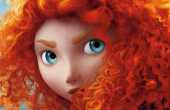Laura Jones
Contributing writer for The Artifice.
Contributor I
- Lurker
- Pssst
- Sharp-Eyed Citizen
- ?
- Articles
2 - Featured
2 - Comments
18
- Ext. Comments
10 - Processed
9 - Revisions
9
- Topics
9 - Topics Taken
6 - Notes
25
- Topics Proc.
13 - Topics Rev.
1
- Points
836 - Rank
167 - Score
424
Latest Articles
Latest Topics
Has Pop Music Simplified Over Time?In numerous studies, people are finding that pop music is homogenizing, both harmonically, stylistically, and even in vocal variety (i.e. very similar sounding artists being appreciated). Some claim that pop music is being "dumbed down" by becoming harmonically and melodically simplified. While pop music nowadays may be more harmonically and melodically simple, are there other factors that make it more complex/varied? Should we judge music based on these factors, or should we appreciate other aspects of the genre? What are those factors that we should appreciate?
|
Can Musicals Transfer to the Screen Effectively?Into the Woods, The Last Five Years, Les Miserables, Rent: in the past few years alone, there have been multiple movie musicals released, often with mixed receptions. Is it possible for musicals to move from the stage to the screen and still retain their magic? What might some challenges be? (i.e. target audience; musical fans perhaps disliking casting when people who are not traditionally "singers" are cast – think Hollywood actors rather than Broadway, cutting songs for the sake of time, sound editing causing the magic of a live performance to be lost, etc.)
|
Parental Figure Deaths and Superhero OriginsLosing a loved one is a life-changing event. In comics, it's common that the death of a parental figure is the catalyst for becoming a superhero. Batman, Spiderman, and Daredevil are just a few examples. Is there a reason that this plot point continues to be reused? Has it become overused, or is it just an accurate representation of the extremes to which the death of a loved one can push you? (Obviously, we don't tend to become superheroes, but I'm speaking metaphorically.)
|
Books to Movies or Books to a Television Series?Game of Thrones, Outlander, Netflix's Jessica Jones, and Netflix's Daredevil: these are some examples of books and comic books that are now being put into a television series rather than a film. It seems to be a new trend. What are the merits of having a book series represented through television rather than a single film (such as Harry Potter or Lord of the Rings)? Is one better? Is this a natural progression of the new trend of splitting a book into two or three movies (think Harry Potter and the Deathly Hallows or The Hobbit)? Is the age of one-book-to-one-film over? If so, is that a good thing?
|
BDSM and Fifty Shades of GreyWhile the quality of its prose is generally considered substandard, E.L. James's Fifty Shades of Grey has topped bestseller lists around the world. The book is also the subject of controversy when it comes to its portrayal of relationships and BDSM, but that doesn't seem to have impeded its popularity. What does the popularity of the book say about society and its views of BDSM? Does everyone secretly harbour a repressed desire for sexual domination? Is that the cause of its popularity?
|
What Characteristics Cause a Song to Reach the Top 40?Looking at the current USA Singles Top 40, what causes a song to be a huge hit? Are there similar musical characteristics? Does it have to do with marketing? Are certain themes prevalent? Based on these popular songs, what would you say the "formula" to having a hit is? If the songs share many characteristics, would you say that this is positive or negative?
|
Jessica Jones and Kilgrave as Mental IllnessNetflix's Jessica Jones was released in November 2015 and has had a great response over the past few months. Mental illness is something the protagonist struggles with in the form of PTSD. The villain, Kilgrave, has the power to control the minds of others. He is also the cause of Jessica's PTSD and haunts her through just the knowledge of his existence. To what degree is Kilgrave representative of various forms of mental illness? Can the metaphor of Kilgrave=mental illness be extended to depression, anxiety, attachment issues, schizophrenia, etc.? Are certain aspects of mental illness shown in the show through him? (I.e. No one believes in his existence=mental health stigma, people who have been "kilgraved" constantly fear his return, etc.)
|
What is the future of opera?Opera houses are closing all over the world. Audiences are becoming increasingly smaller (and older). There is also a certain stigma surrounding opera, possibly because it is now considered somewhat elitist. Opera has been around since 1597; is it possible that this art form is no longer relevant? Is it doomed to die out entirely?
|
Latest Comments
| Hamilton and the Construction of Post-Obama Americanism | |
I’m glad that you talked about mental disability as well. The fact that it’s present primarily in villains probably only perpetuates the stigma around mental illness. I would love to see a prominent hero with depression or bipolar disorder. | Disability in Comics: The Misconstrued Representation |
Interesting article. I’ve never read the comics; I only watched the movies, and it never occurred to me to think that Batman might be depressed, except perhaps briefly when he loses a different loved one to the Joker. So, from your article, I assume that you think Batman battled depression from a young age due to the death of his parents. Do the comics go into any of his coping strategies between the death of his parents and his start as Batman? Do you think depression was an ongoing force in his life, or do you think that it was periodic due to situations in his life? | What Batman can Teach Us About Depression |
I absolutely loved reading your comparison between Cersei and Arya. I never would have considered those characters to be similar at all, but you explained it very convincingly. You pointed out a lot of things that I definitely missed, which made this a really fascinating read for me. There are a couple of errors here (Catelyn has a brother, for example), but they don’t detract from the overall article. I thought it was extremely well-written with lots of great, thought-provoking idea. Thanks for writing this. | How A Feminist Watches Game of Thrones: Power Is Power |
Thank you so much! (And thank you for your edits!) | Folk Music: A Timeless Genre |
I think that you can evoke a sound that is close to traditional folk music without technically being “folk” music. Again, it’s a bit of a grey area because there are so many different definitions of what can qualify as folk music. Based on the really long definition I have in the article, I would say that it isn’t technically folk, but it is part of the contemporary folk genre, which is slightly different (think folk festivals). Since their songs haven’t been widely absorbed into the overall culture of a group of people, I don’t think it can technically be considered folk music of the sort that I’m looking at in this article. However, I do think that their music has similar elements, and you can tell that it’s inspired by traditional music. I hope that answers your question! | Folk Music: A Timeless Genre |
Very well-written. I can’t tell you how much I appreciate your great grammar, convincing writing, and interesting ideas. As a Sherlock fan, I’ve wandered across a lot of SuperWhoLock stuff, and I always wondered why these three shows had a large mutual fanbase. I now feel as though I understand!! You drew some great links between them. This was such a great read; I only wish there was more!! | The Keys to SuperWhoLock |
I have to say that I disagree with parts of this. I’m not sure that Dr. Jekyll truly wanted to become Mr. Hyde; he enjoys it at first, yes, but then he tries to destroy that inner self entirely. He fails, but he does try. If anything, Mr. Hyde wins and takes over against Dr. Jekyll’s will. In that sense, while I see some interesting parallels with the character of Heathcliff, I have to disagree with the idea that he wants his darker inner self to win. If anything, I think that both works focus on tortured souls, with one just being more blatant about duality through a physical transformation. However, I do think that you pointed out several elements that do pinpoint why these works are such excellent examples of the gothic genre. | Stevenson and Bronte: The Similarity Between Vastly Different Stories |


Great article! I felt like a learned a lot. I really appreciate Hamilton for it’s musical genius, but you’re right; it’s definitely a very relevant show for the current political climate in the US.